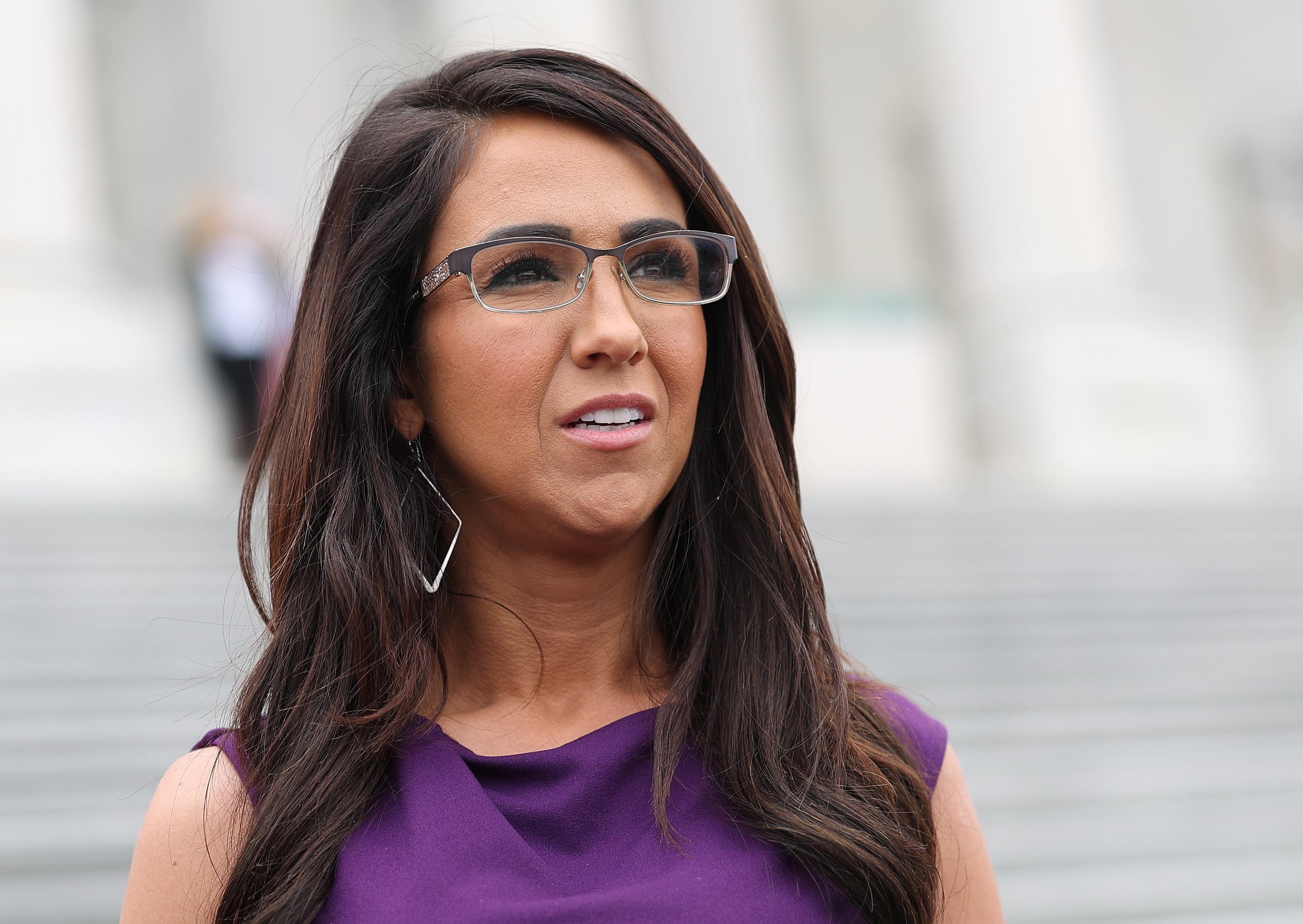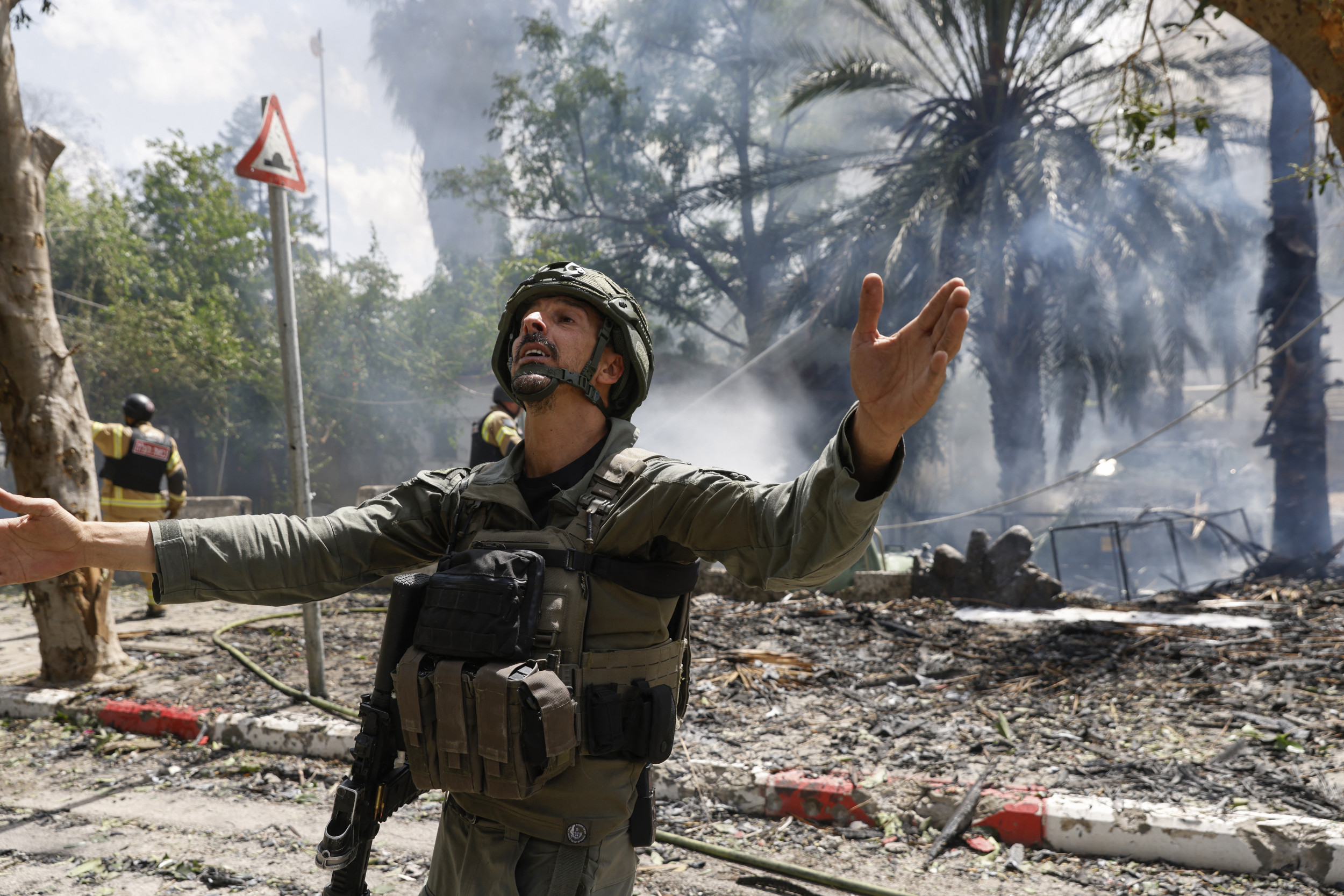The last few months have been deeply concerning for U.S. military spouses and parents like the two of us. When Israel and Iran exchanged unprecedented airstrikes against each other, many of our military families began wondering, "Will this drag the U.S. into another endless war that could put my loved one in harm's way?"
Amid this already volatile conflict, one additional factor has left us with even more stress: the looming risk of nuclear weapons, and the knowledge that our world no longer has robust diplomatic protections to prevent their use.
That is why the two of us are teaming up to urge a renewal of international nuclear diplomacy in this crucial moment. Collectively, our personal experiences span from the end of the Cold War to present-day Middle East deployments. We know firsthand how important policy guardrails are regarding nuclear weapons for the safety and well-being of U.S. service members.
Erin is the spouse of a 21-year Navy veteran. She still remembers doing "duck and cover" drills in elementary school—a mainstay for many baby boomers and Generation Xers, which consistently reminded the public that nuclear weapons were a real and present danger.
Like the rest of the world, Erin watched with horror as the U.S. was attacked on Sept. 11, 2001. She had to rush to the New York Harbor to hand her spouse a duffel bag before he rapidly deployed that very same day. Just like that, the new "Global War on Terror" fully replaced the old Cold War paradigm—and with that, our country's public discourse over nuclear weapons faded as well.
Yet nuclear weapons still have enormous relevance for today's most pressing global conflicts. As Russia continues its war with Ukraine, its access to nuclear weapons constantly influences how the U.S. and other NATO countries strategize ways they can defend a democracy under attack without provoking nuclear war. As Israel and Iran escalate violence against one another, the risk that Iran could choose to complete its journey toward nuclear weapons acquisition raises the stakes of any hostilities.
The tools that would be most effective at reducing nuclear risk are currently limited. After Russia invaded Ukraine, it suspended its participation in the last remaining nuclear weapons treaty with the U.S.—the New START treaty. And six years ago, the United States unilaterally withdrew from the Joint Comprehensive Plan of Action (JCPOA)—an agreement that secured guarantees from Iran to limit its nuclear weapons development. Since then, reports indicate that Iran has escalated its nuclear enrichment program so much that it could produce and deploy a nuclear weapon within one week.
These facts make everything happening right now that much scarier—which Shalena recently experienced firsthand.
Shalena's son is a proud Marine. She still remembers when he first called to tell her he was enlisting—he insisted that, if he was going to take an oath to protect his country, he wanted to serve on the frontlines if needed.

Her son deployed last summer. At first, Shalena was relieved that he would get the deployment experience that he wanted, in what felt like a relatively low-risk context. But then Oct. 7 happened. Suddenly, U.S. forces across the world were rerouted in order to shore up regional security. Shalena's only mode of communication with her son was through an app where he could check-in occasionally—at one point, three full weeks went by without any updates, and her panic set in. A mother's natural reaction is to protect her child from harm, but she was stuck unable to help at all.
As military families, we know that we will never be immune from experiencing these kinds of pain, panic, and grief—but there are now additional layers of fear that don't have to be here. Nuclear conflict is one of those layers. This anniversary of JCPOA withdrawal should serve as a somber reminder of an alternate universe in which—had the agreement still been in place—our world would be a safer place, and military families like ours would have one fewer reason to be kept up at night.
We need stronger nuclear diplomacy so that world-ending weapons can be taken off the table. It is imperative that the U.S. continue pursuing nuclear diplomacy with great powers such as Russia and China, and that we collaborate with partner nations to re-establish enough trust with Iran to reach a new agreement.
Until recently, nuclear conflict felt like a far-off possibility to many of us. But current global events have brought that fear much closer to home.
Erin Thomas Anhalt is the spouse of a navy veteran and a citizen of Choctaw Nation of Oklahoma.
Shalena Critchlow is the parent of an active-duty Marine and former military spouse, and is a descendant of the Luiseno Rincon Band of Indians and the Santa Ysabel San Dieguito Indians tribe in Southern California.
The views expressed in this article are the writers' own.
Uncommon Knowledge
Newsweek is committed to challenging conventional wisdom and finding connections in the search for common ground.
Newsweek is committed to challenging conventional wisdom and finding connections in the search for common ground.





